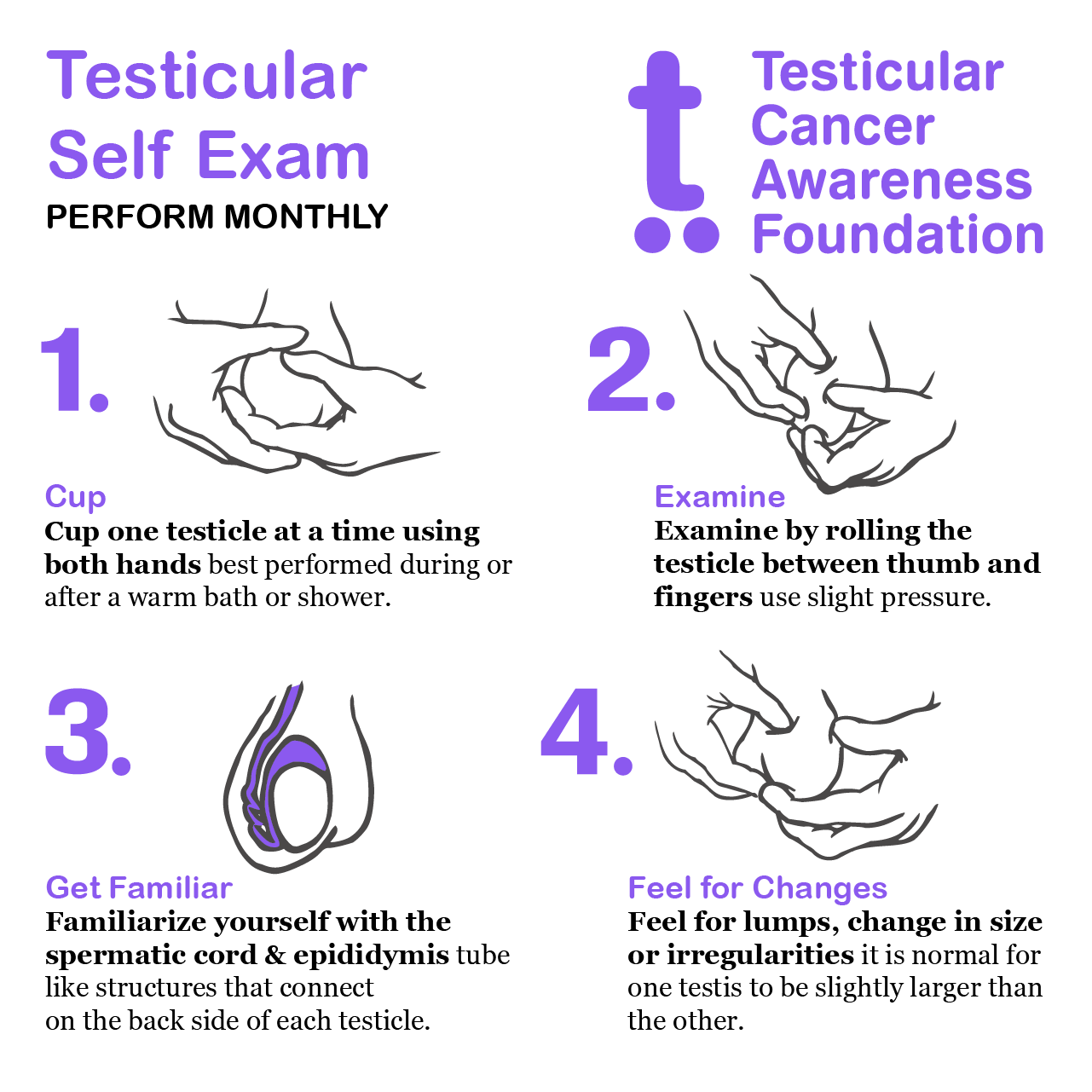Preventative Care: Can I Lower my Cancer Risk?
While there is no guaranteed way to eliminate your risk of testicular cancer, making healthy lifestyle choices and staying proactive about your health may help reduce your risk.
Making informed lifestyle choices and staying proactive with monthly testicular self-exams and regular medical care can reduce your overall risk and support early detection. Being proactive isn’t about fear; it’s about empowerment.
Perform regular testicular self-exams
Perform regular monthly testicular self-exams, which take only a few minutes, but can make a significant difference in your health. By becoming familiar with the normal look and feel of your testicles, you increase your chances of noticing any unusual changes early. Early detection of lumps, swelling, or other abnormalities greatly improves the effectiveness of treatment and can lead to better outcomes. Making self-exams a simple monthly habit empowers you to take an active role in your health and catch potential issues before they become serious.
Cup: Cup one testicle at a time using both hands. This is best performed during or after a warm bath or shower.
Examine: Examine by rolling the testicle between thumb & fingers. Use slight pressure.
Get familiar: Familiarize yourself with the spermatic cord & epididymis. The tube-like structures that connect on the back side of each testicle.
Feel for changes: Feel for lumps, changes in size, or irregularities. it is normal for one testicle to be slightly larger than the other.
Consult a medical expert immediately if anything abnormal is found during these self-exams.
Schedule routine medical checkups
Establishing care with a trusted physician ensures you're staying on top of your health and screenings. Don’t wait until something feels wrong, make preventative care a habit.
Visit a primary care doctor regularly, even if you feel healthy.
Stay current on screenings, labs, and follow-up appointments.
Build a relationship with a provider you trust.
Avoid known carcinogens & risk factors
Don’t smoke, vape, or use smokeless tobacco.
Limit alcohol intake or abstain entirely.
Be mindful of occupational and household chemical exposures.
Check product labels for PFAS and other long-lasting toxins.
PFAS, or “Forever Chemicals,” are linked to testicular cancer tumor growth.
Focus on Whole-Person Wellness
Lowering your risk isn't just about one thing; it’s a combination of how you treat your body and mind. These four areas are foundational:
Nutrition
Eat a balanced diet rich in fruits, vegetables, whole grains, and lean proteins.
Avoid highly processed foods and artificial preservatives when possible.
Exercise
Aim for at least 20-30 minutes of moderate activity per week.
Movement supports immune function, reduces inflammation, and lowers cancer risk.
Even short walks, stretching, or strength training help.
Mental Well-being
Chronic stress can impact immune health and hormone balance.
Build in regular time to decompress: therapy, mindfulness, social connection, or simply unplugging.
Don’t ignore your mental health, it is just as crucial as your physical health.
Rest & Recovery
Prioritize sleep: 7–9 hours a night is ideal for most adults.
Overexertion without recovery stresses your body.
Listen to your body: rest is productive.
Prevention Is a Lifelong Practice
Prevention is a lifelong practice that requires dedication and consistency rather than perfection. While there is no proven method to completely prevent testicular cancer, the choices you make every day (like maintaining a healthy lifestyle and performing monthly testicular self-exams) can help you stay connected to your body to catch any changes early.
Early detection is key to successful treatment, and staying proactive empowers you to take control of your health.
Your commitment to yourself matters deeply, and by being attentive and informed, you are investing in your future strength and well-being.


